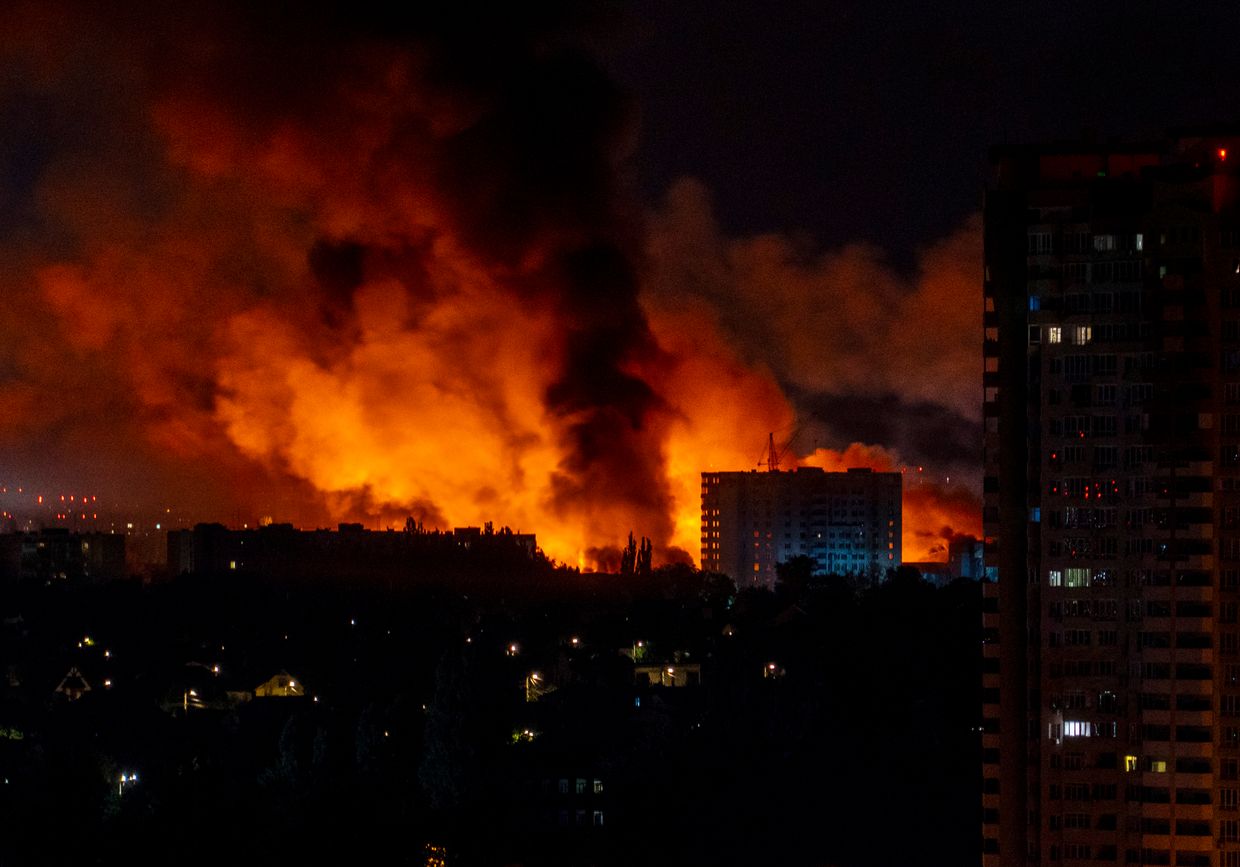ARMA to work with Czech experts to return seized Russian assets
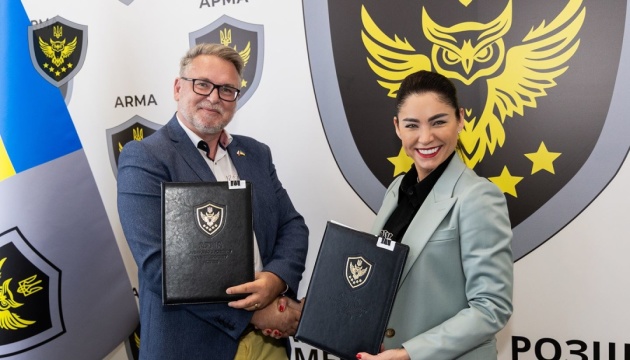




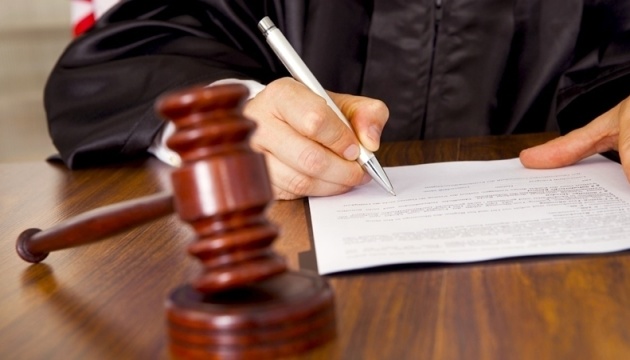

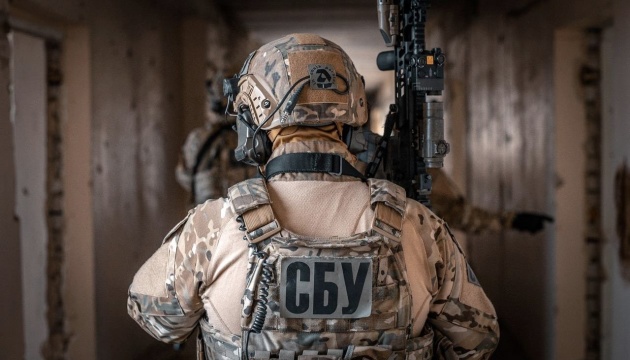

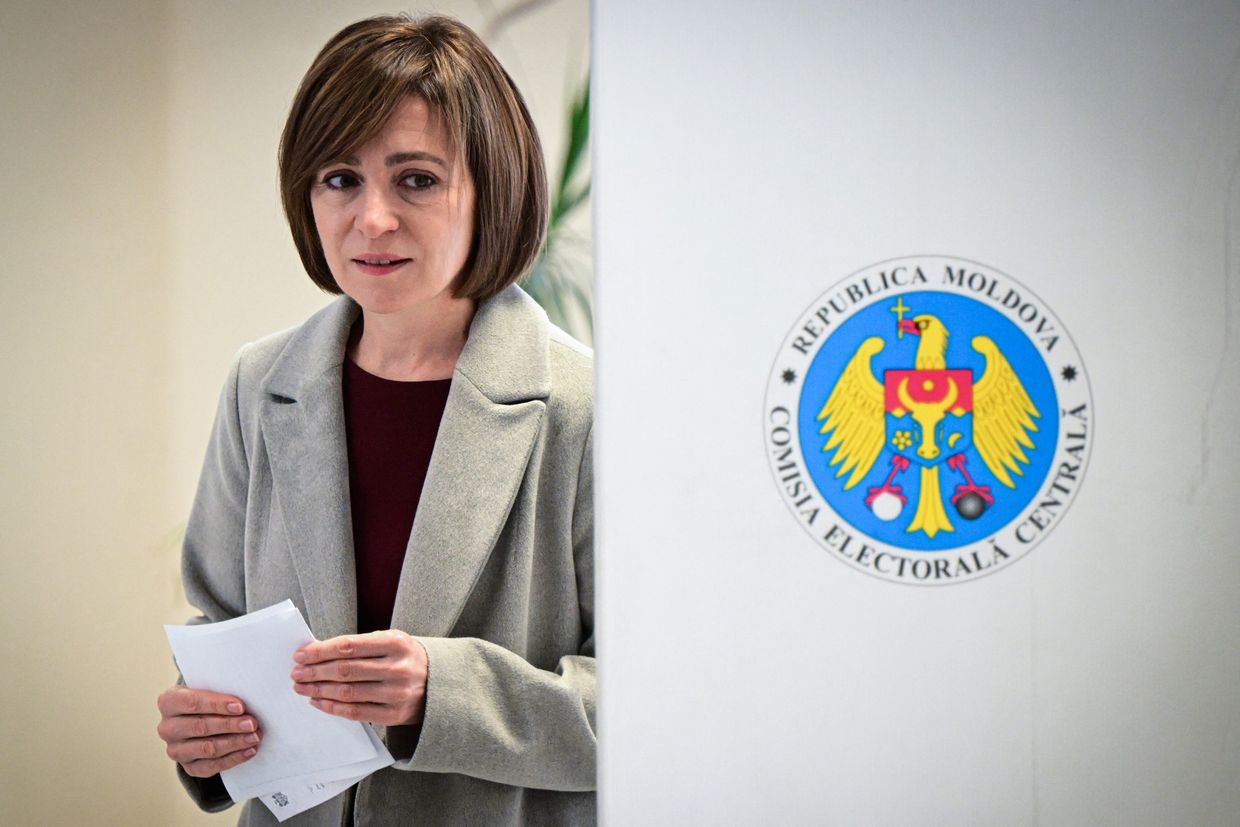

Moldovan President Maia Sandu said on July 4 that her country's European Union aspirations depend on Moldovan citizens as a crucial September 28 election approaches.
Sandu hopes her pro-European Party of Action and Solidarity (PAS) will retain its parliamentary majority, paving the way for Moldova, one of Europe's poorest nations, to join the EU by 2030.
Sandu made her remarks at the conclusion of the 27-nation bloc's inaugural summit with Moldova. Her PAS party faces a challenge from the pro-Russian Socialist Party and its allies in the upcoming election. Sandu secured re-election last year by a narrow margin against a Socialist challenger in the ex-Soviet state, located between Ukraine and Romania. A referendum seeking public backing for EU membership also just barely surpassed a 50% majority.
"Prosperity and peace do not occur for nothing, you have to build them. With collective effort and unity. When citizens are united and choose the correct path and proceed along it," Sandu told a news conference after the summit. "The European Union is already happening here. The only risk is if we stop. If we decide this autumn that nothing will stop us, then everything is possible."
Sandu and her party have condemned Russia's invasion of Ukraine and accuse Moscow of destabilizing Moldova. Russia, in turn, claims many Moldovans desire to maintain ties with Moscow and accuses Sandu of fostering Russophobia.
Opinion polls suggest that no single party will likely secure a parliamentary majority. If no majority emerges, pro-European parties would need to engage in coalition talks.
At the summit, which included European Commission President Ursula von der Leyen and European Council head Antonio Costa, the EU announced the disbursement of the first €270 million ($318 million) tranche of an Economic Growth Plan for Moldova.
 The Kyiv IndependentAnna Fratsyvir
The Kyiv IndependentAnna Fratsyvir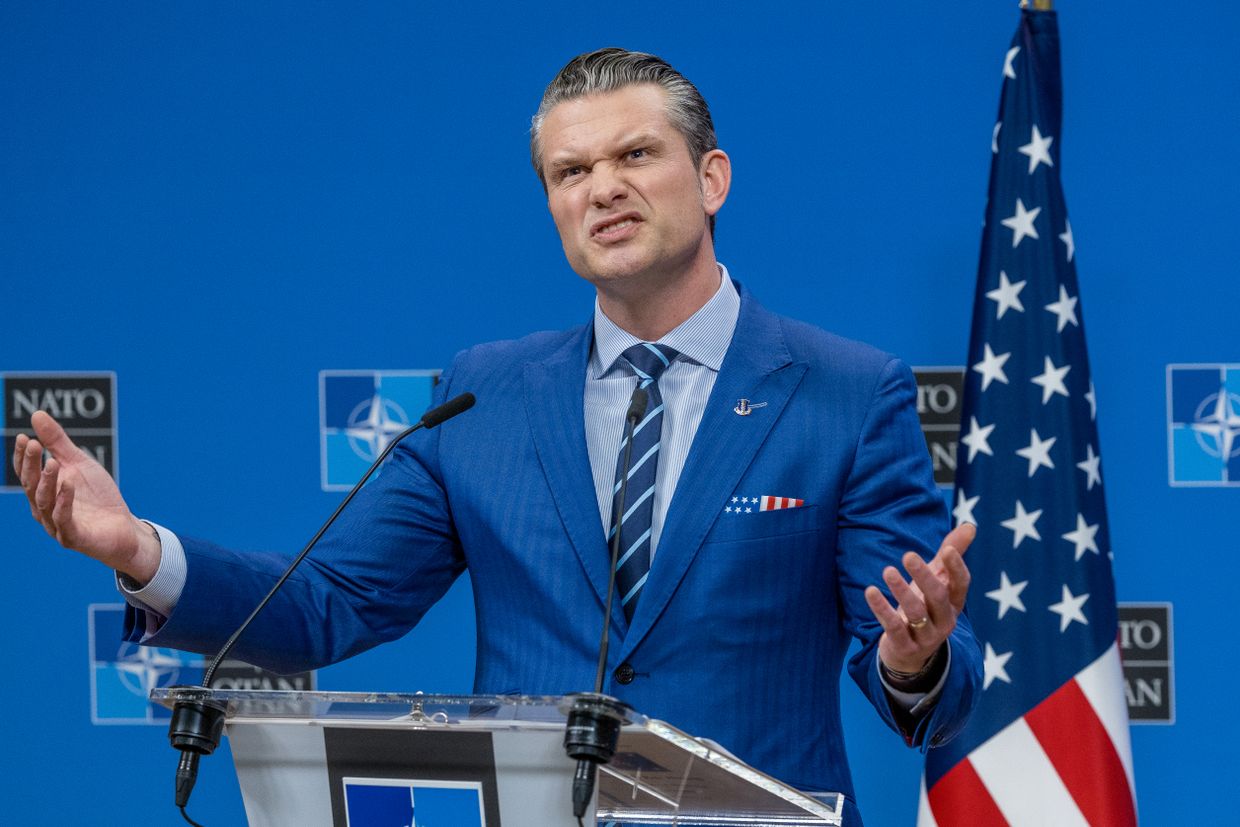


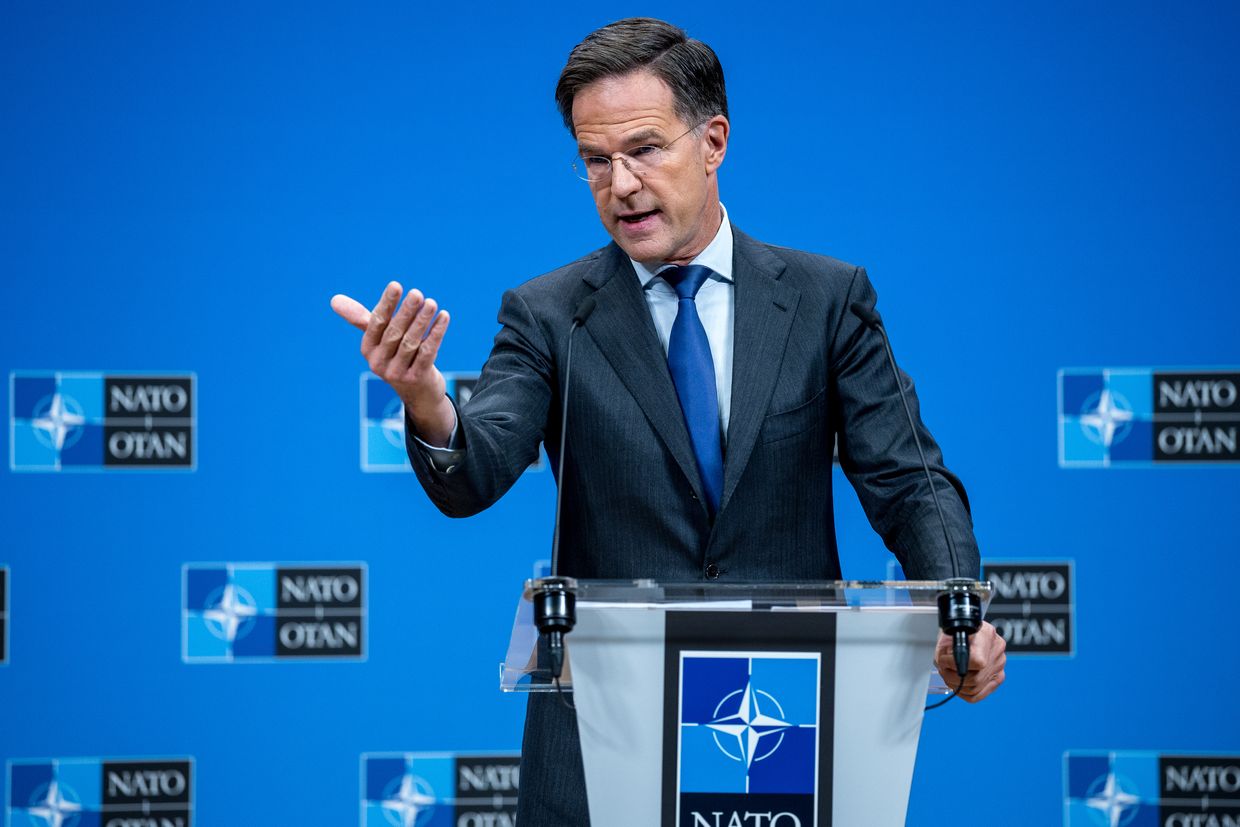

NATO Secretary General Mark Rutte on July 4 called on the United States to show "flexibility" in its military aid to Ukraine, after Washington unexpectedly paused some weapon deliveries citing concerns over dwindling domestic stockpiles.
The Pentagon's decision to halt transfers of artillery rounds and air defense systems coincides with a significant escalation in Russian attacks on Ukrainian cities, exposing critical vulnerabilities in Ukraine's air defense capabilities as current US funding nears expiration this summer.
"The US has to make sure that the stockpiles are at the level we need for the U.S. to have, because they are crucial for our collective defense," Rutte told reporters on July 4. "At the same time, of course, we hope for the flexibility, we have to make sure also that Ukraine can move forward."
The Pentagon announced the aid pause this week, citing a review of U.S. stockpiles as it assesses the need to conserve weapons for other potential security threats. This move comes as Russia intensified its air campaign, unleashing record drone and missile strikes on Kyiv and other major urban centers overnight.
President Volodymyr Zelensky spoke with U.S. President Donald Trump by phone Friday, aiming to persuade the U.S. leader to resume deliveries and increase weapon sales to the country. Trump expressed disappointment following his latest conversation with Russian counterpart Vladimir Putin, which produced no progress toward a ceasefire in Russia's war against Ukraine, now in its fourth-year.
Given Russia's apparent unwillingness to pursue a ceasefire, allies must "be sure" Ukraine "has what it needs to stay in the fight," Rutte emphasized. He spoke after a ceremony welcoming Air Force General Alexus Grynkewich, the new commander of U.S. military forces in Europe and top NATO military commander.
Grynkewich acknowledged the ongoing discussions, adding: "We’ll see more play out of the next week or two." He also announced a 90-day review of U.S. forces in Europe, examining potential future US posture in the region.
A broader US military review is expected later this summer, potentially outlining significant reductions in Europe. This prospect has already raised concerns among European NATO allies, who say they have received no prior information about these plans.
 The Kyiv IndependentTim Zadorozhnyy
The Kyiv IndependentTim Zadorozhnyy
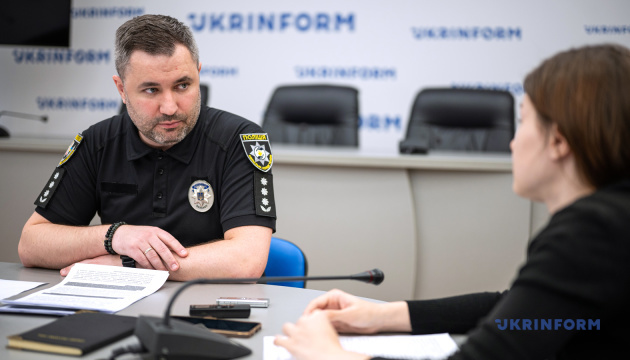

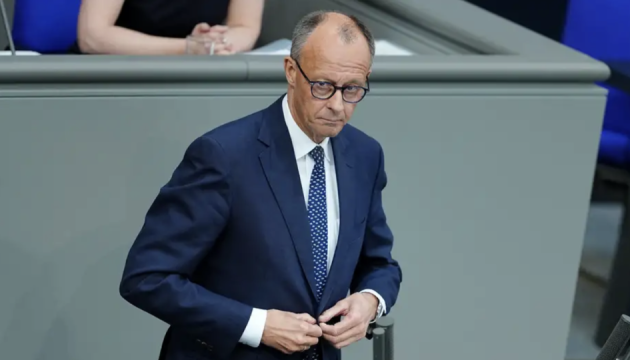

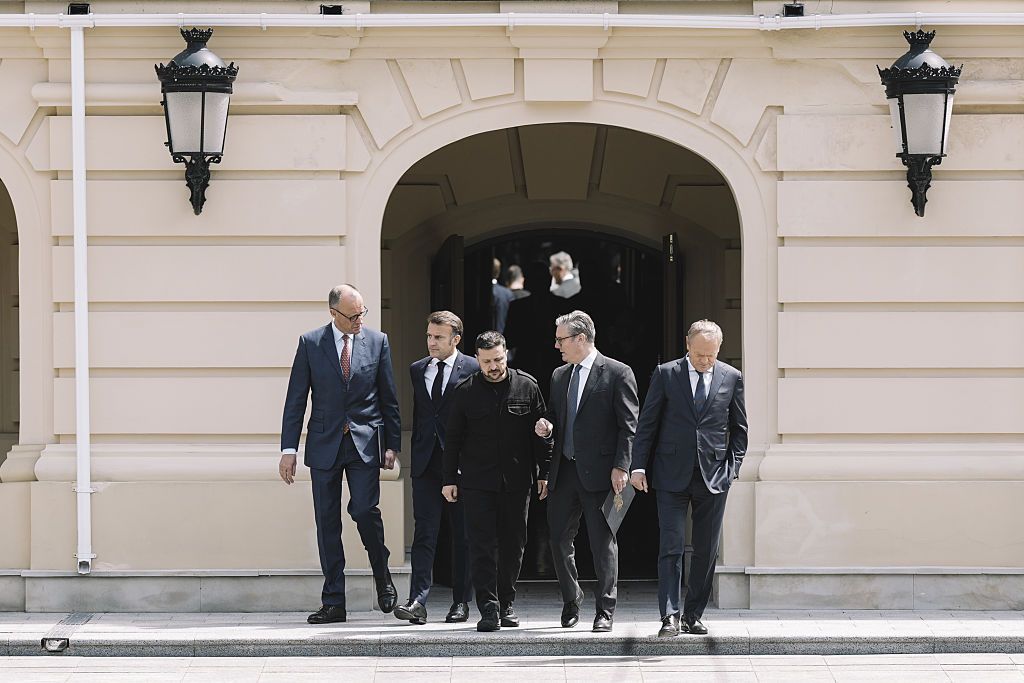

The British and French-led "coalition of the willing" is set to meet in the U.K. next week, Politico reported on July 4.
"On the agenda, there's how to maintain Ukraine in a capacity to fight, how to increase pressure on Russia, and how to continue the work on the next steps," an unnamed French official told Politico.
As Washington's intensified efforts to broker a ceasefire in Russia's war against Ukraine failed, two rounds of largely inconclusive peace talks between Kyiv and Moscow took place in Turkey.
Following various failed attempts to obtain a ceasefire or peace deal, the coalition will meet again on July 10.
The French official told Politico that the priorities of the "coalition of the willing" have not changed, and will continue to focus on Ukraine's military needs.
The meeting will be led by U.K. Prime Minister Keir Starmer and French President Emmanuel Macron, with President Volodymyr Zelensky and various leaders joining virtually, the official said.
The "coalition of the willing" has met repeatedly to determine potential security guarantees and a peacekeeping force for Ukraine. Leaders of 31 nations met in Paris on March 27 at a summit for the coalition.
Several countries, including France and the U.K., which lead the coalition, have pledged to send troops on the ground to enforce a potential ceasefire.
 The Kyiv IndependentKateryna Hodunova
The Kyiv IndependentKateryna Hodunova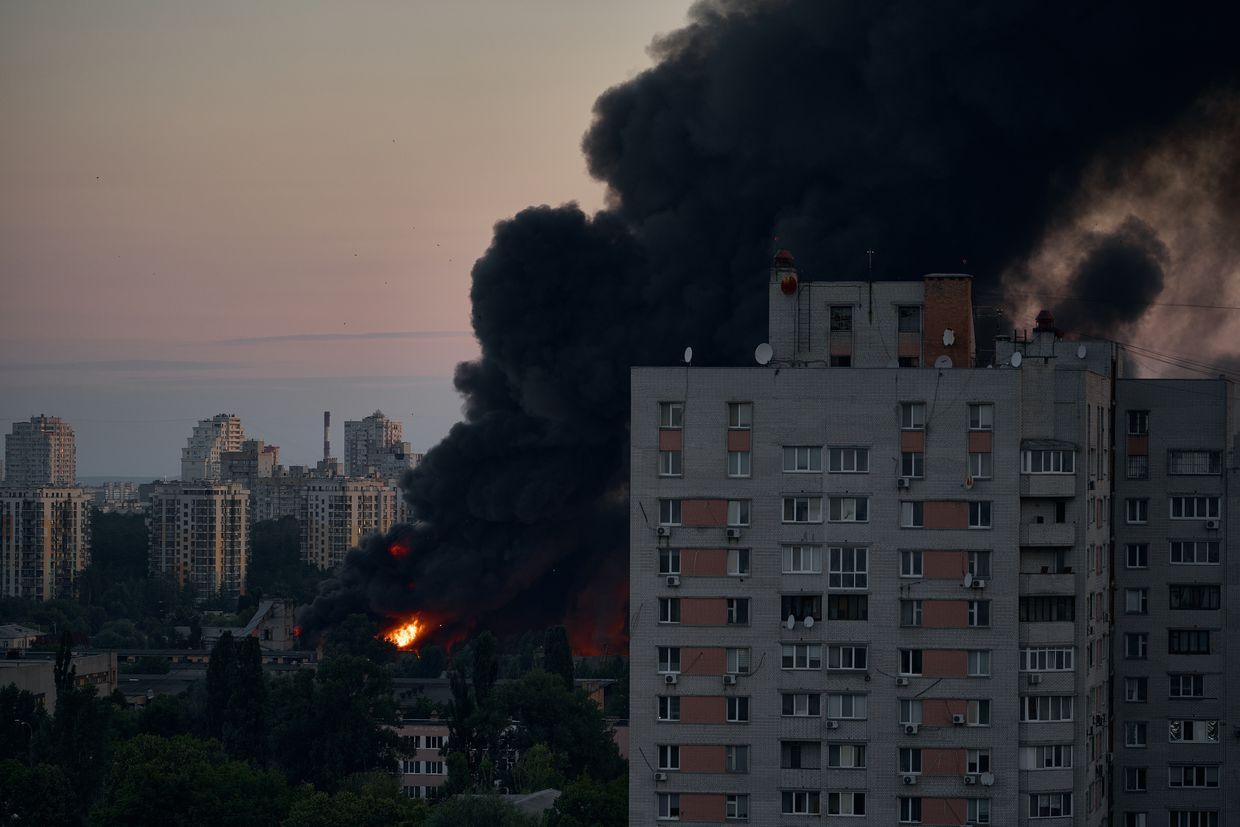
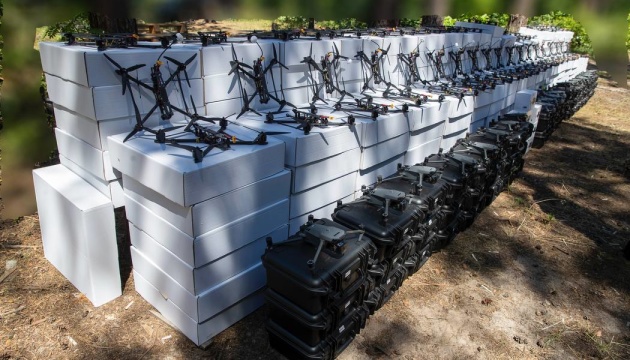

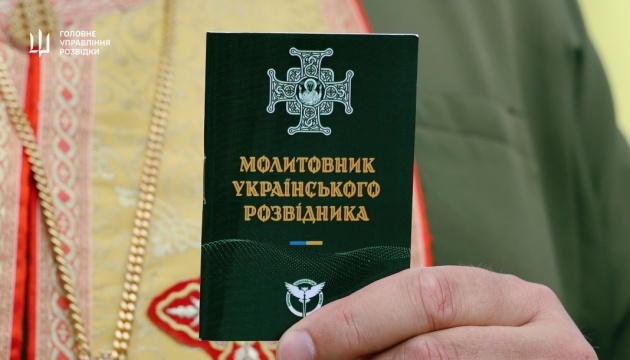

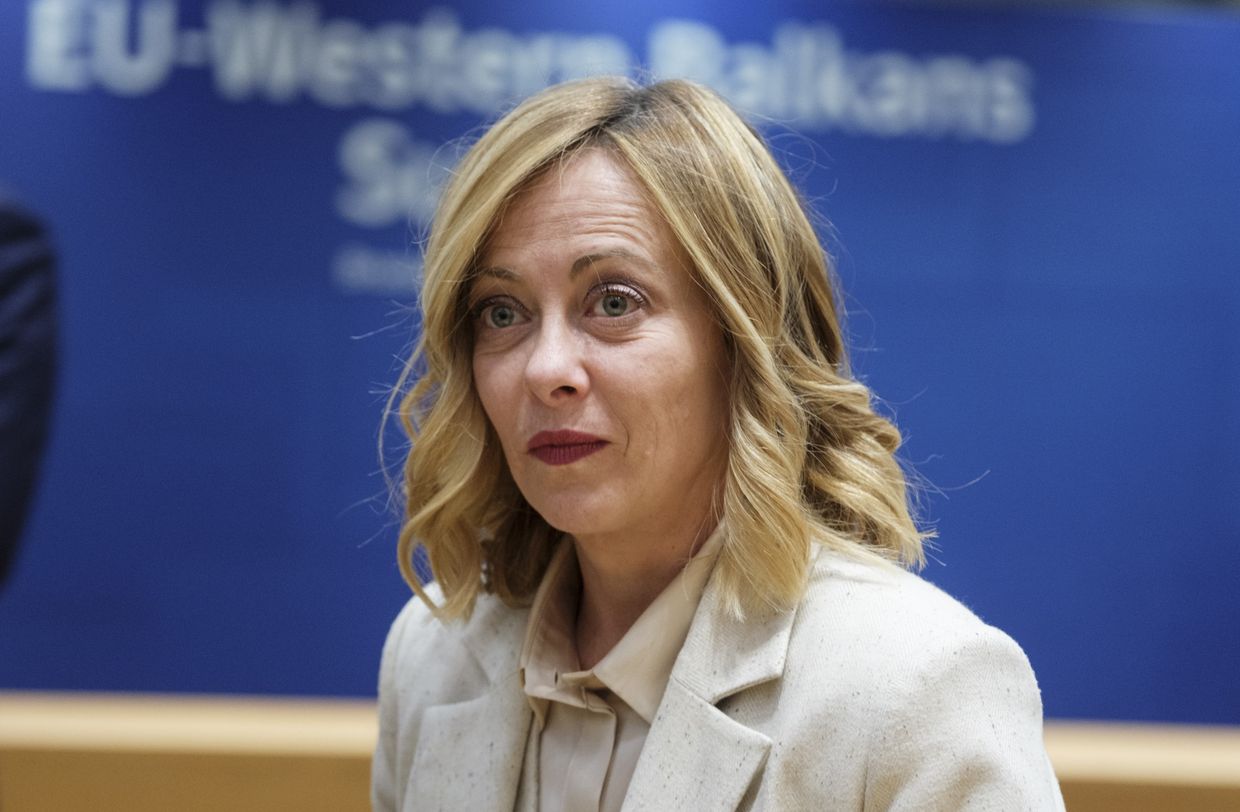

The U.S. has "reviewed" the components it is supplying Ukraine, but did not halt assistance, Italian Prime Minister Giorgia Meloni said on July 4.
"The United States has not stopped supplying weapons and supporting Ukraine, it has reviewed the decision to supply specific components... (this is) significant but very different from the total American disengagement that has been reported," Meloni said, speaking at a forum.
U.S. President Donald Trump on July 3 denied that Washington has paused supplying weapons to Kyiv amid media reports of a halt in shipments.
Pentagon spokesperson Sean Parnell confirmed on July 2 that some military assistance to Ukraine has been halted as the U.S. Defense Department conducts a review of foreign aid deliveries.
"I hope for positive developments on the issue," Meloni said, adding that she has spoken to Trump regarding Ukraine.
The weapons reportedly held back include two dozen Patriot air defense missiles, over two dozen Stinger air-defense systems, precision artillery rounds, Hellfire missiles, drones, and more than 90 AIM air-to-air missiles launched from F-16 fighter jets.
NATO Secretary General Mark Rutte said on July 2 that he understands the White House's need to safeguard its own defense capabilities, but underscored that Ukraine urgently requires sustained support.
"I totally understand that the U.S. always has to make sure its interests are covered... When it comes to Ukraine, in the short term, Ukraine cannot do without all the support it can get," Rutte said.
A bipartisan group of U.S. lawmakers voiced their opposition to the decision to halt military aid shipments to Ukraine on July 2.
"We must build up our own Defense Industrial Base here in the U.S. while simultaneously providing the needed assistance to our allies who are defending their freedom from brutal invading dictators. To not do both is unacceptable," Republican Rep. Brian Fitzpatrick, the co-chair of the Congressional Ukraine Caucus, said.
Democratic Senator Richard Blumenthal, a member of the Senate Armed Services Committee, described the military aid pause as "fallacious and maybe even disingenuous."
 The Kyiv IndependentThe Kyiv Independent news desk
The Kyiv IndependentThe Kyiv Independent news desk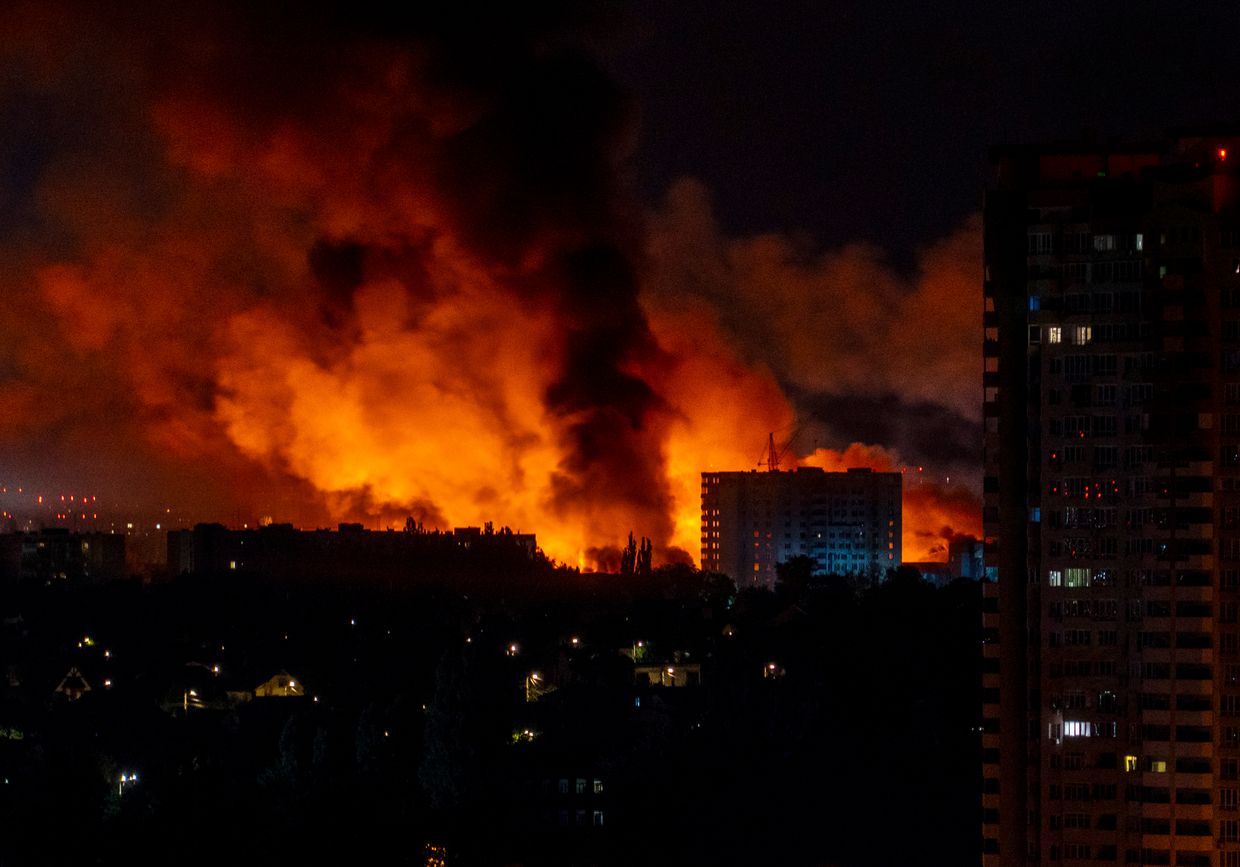
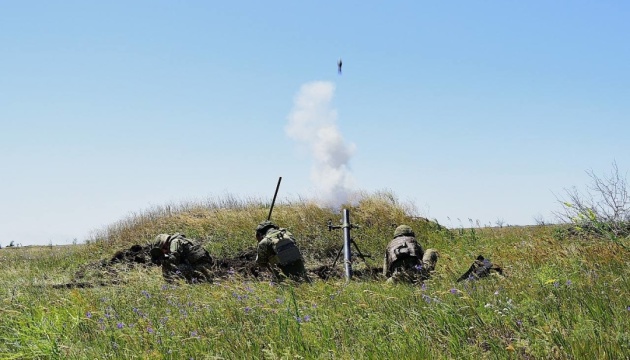

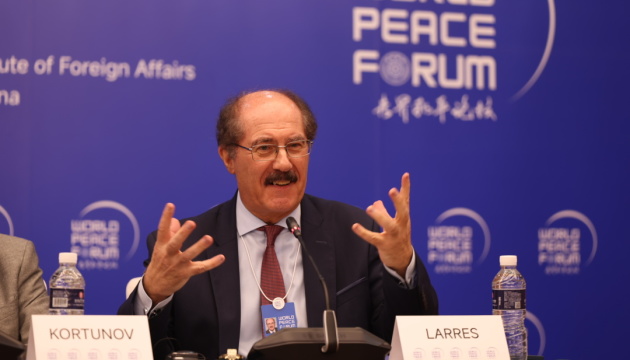

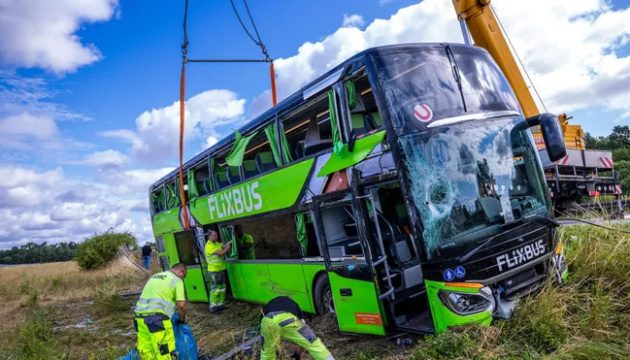

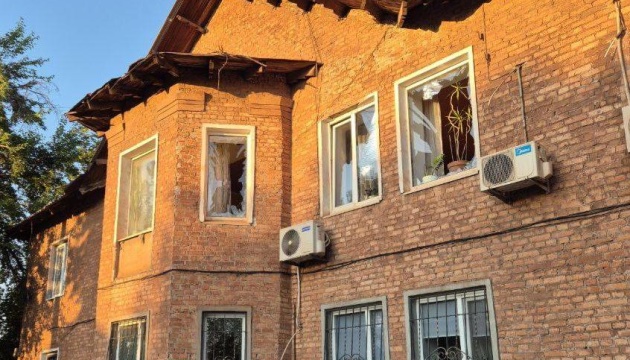



The commander of Ukraine’s Unmanned Systems Forces warned on July 4 that Russian Shahed drone strikes could escalate to 1,000 per day, prompting Ukraine to consider relocating drone production.
"Under the pressure of increasing mass use by the enemy of a cheap, but everywhere accessible Shahed... There will be 1,000 units (launched) per day and more," Robert "Magyar" Brovdi said in a social media post.
Russia regularly targets Ukrainian cities with Iranian-designed Shahed drones. On the night of July 4, it launched drones and ballistic missiles at Kyiv, injuring at least 26 people and killing one. President Volodymyr Zelensky said Russia had launched a record 550 drones and missiles during the seven-hour barrage.
"I am not scaring anyone," Brovdi added, saying his warning is based on intelligence analysis.
Meanwhile, Kyiv is considering relocating drone production amid the increased threat of Russian attacks. Ukraine has also sought to expand its own defense production abroad, reaching key agreements with allies in recent weeks.
On July 4, Copenhagen and Kyiv signed an agreement that allows Ukrainian defense companies to open production facilities in Denmark, Strategic Industries Minister Herman Smetanin said.
Meanwhile, Skyeton Prevail Solutions — a joint venture between Ukrainian drone manufacturer Skyeton and U.K.-based Prevail Solutions, will manufacture and supply Raybird drones in the U.K., the two companies announced on July 2.
Zelensky and U.K. Prime Minister Keir Starmer met in London on June 23, where the two leaders agreed to an "industrial military co-production agreement."
 The Kyiv IndependentTim Zadorozhnyy
The Kyiv IndependentTim Zadorozhnyy
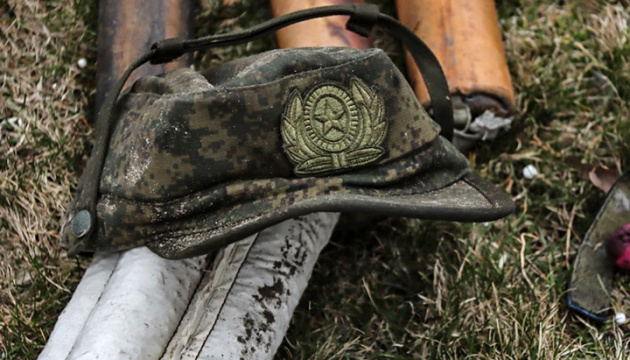

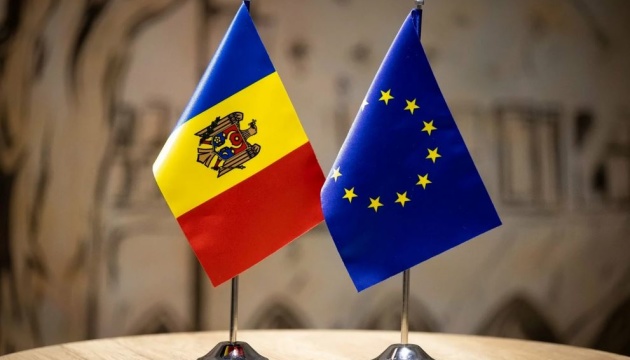

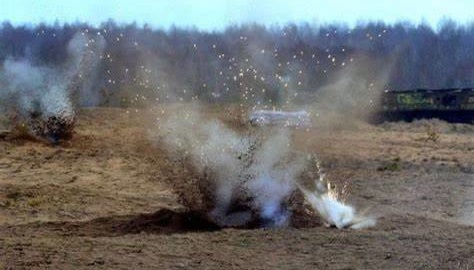

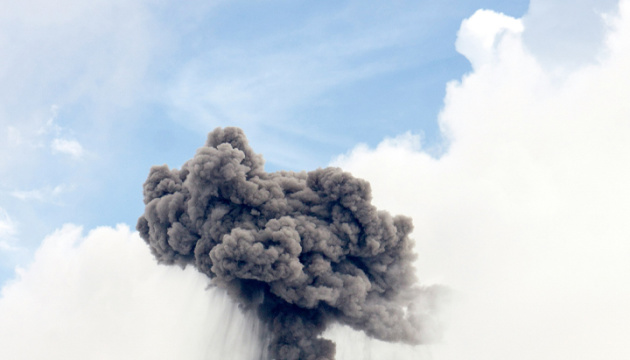

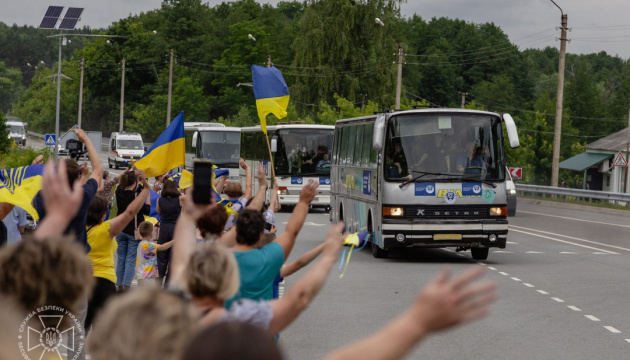



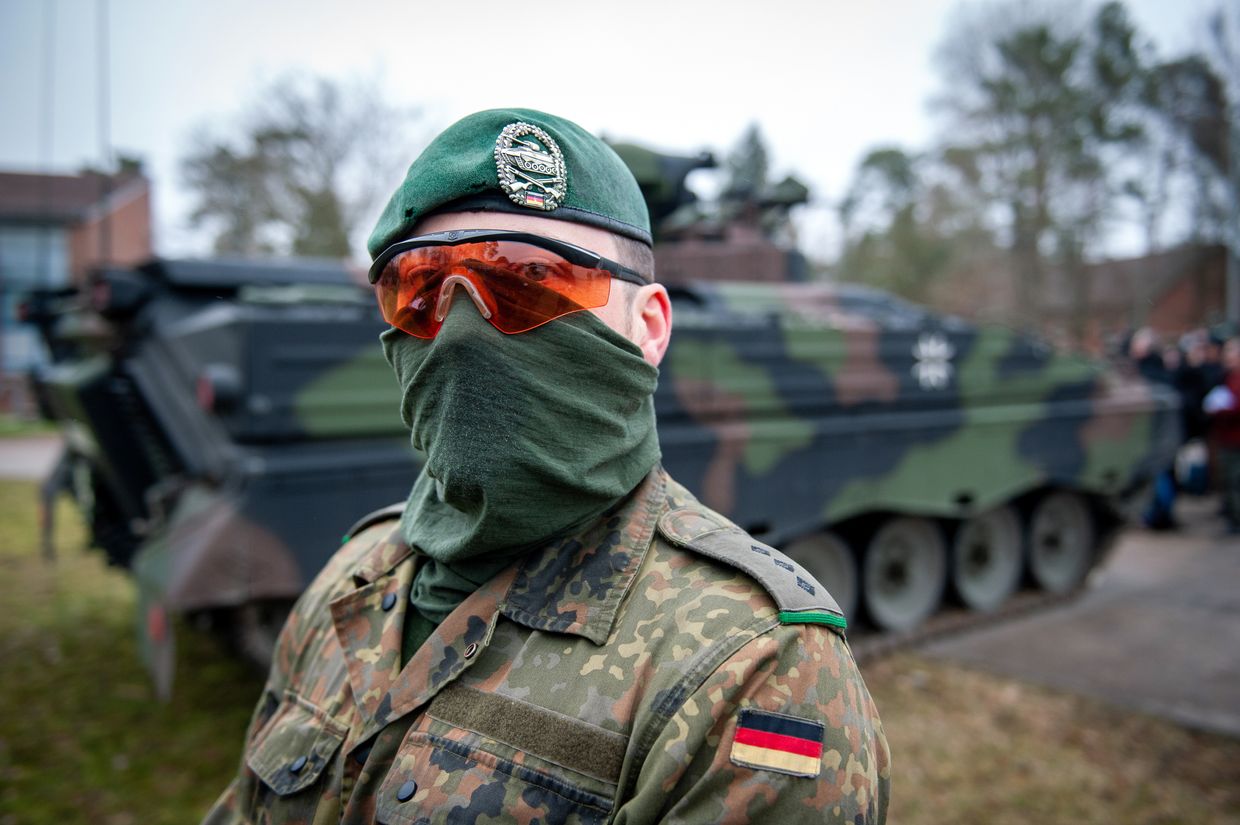

Germany is weighing a massive defense procurement plan worth up to 25 billion euros ($29.4 billion) to supply thousands of combat vehicles for NATO's expanding force structure, Bloomberg reported on July 4, citing unnamed sources familiar with the matter.
The proposed purchases are part of a broader pan-European effort to boost deterrence against Russia, as Western leaders warn of the growing risk of a large-scale war within five years.
Berlin is reportedly considering purchasing up to 2,500 GTK Boxer armored vehicles and up to 1,000 Leopard 2 battle tanks. The purchase would equip up to seven new brigades that Germany has pledged to form under NATO's force generation plans for the next decade.
The Leopard 2 tanks are produced by KNDS Deutschland and Rheinmetall, while the Boxer is made by ARTEC, a joint venture of the same companies. Leopard 2 tanks have been supplied to Ukraine and tested in combat.
Final pricing and quantities are still under negotiation, and the projected cost could fall below 25 billion euros ($29.4 billion) depending on procurement timelines and contract terms.
German Defense Minister Boris Pistorius and top Bundeswehr officials are reviewing the plans, with legislative approval expected by the end of the year, Bloomberg reported.
Germany has faced pressure from NATO and Washington to meet its alliance commitments, including the newly adopted pledge to spend at least 5% of GDP on defense by 2035.
The initiative, endorsed on June 25 at the NATO summit, reflects concern over Russia's wartime economy, military buildup, and destabilization efforts across Europe.
 The Kyiv IndependentTim Zadorozhnyy
The Kyiv IndependentTim Zadorozhnyy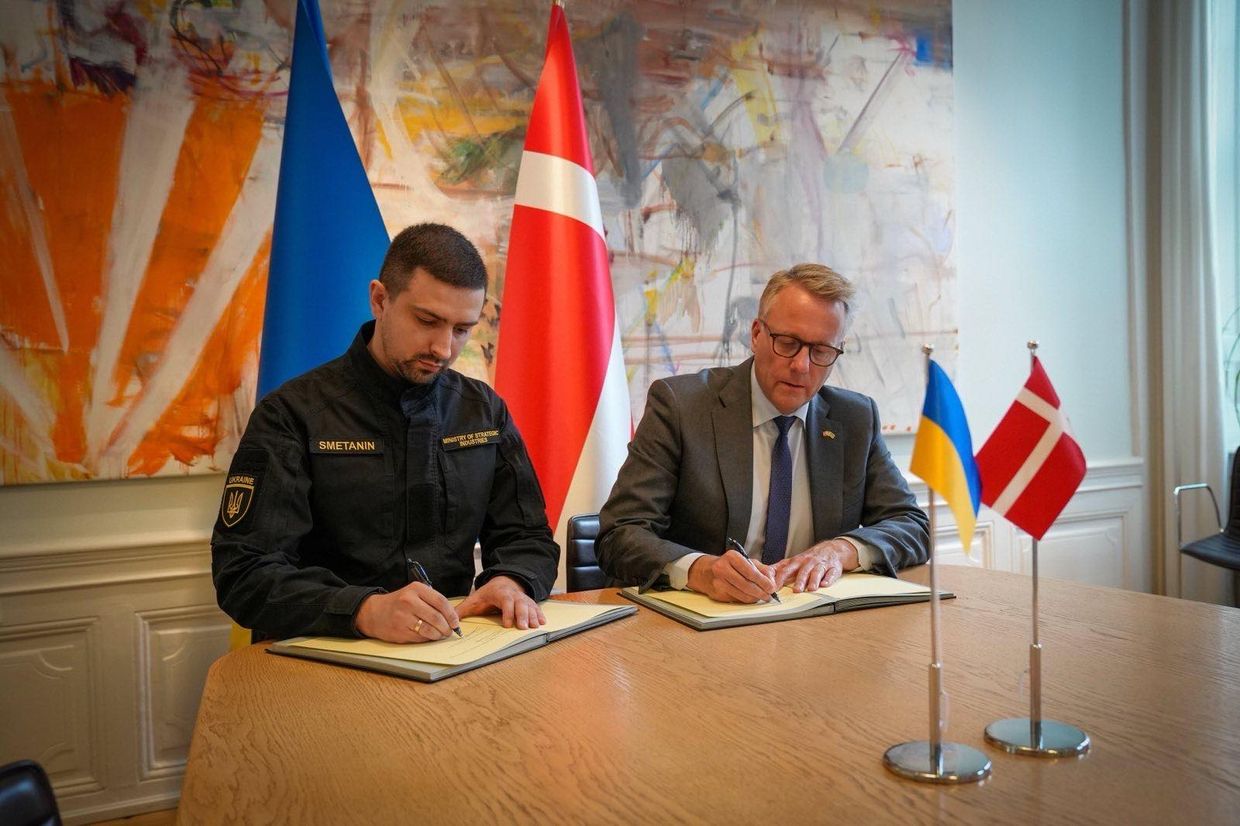


While Ukraine fights for survival, European politicians are retreating into familiar appeasement patterns—abandoning their post-2022 transformation promises for the comforts of pre-war diplomacy that now threaten the continent’s own security.
“I talk to Putin; therefore, I exist.”
— Raphaël Glucksmann

French MEP Raphaël Glucksmann delivered a scathing critique after French President Emmanuel Macron held a two-hour call with Vladimir Putin on 1 July—his first direct contact since September 2022. Glucksmann warned that this return to Moscow engagement signals an “atavistic inconsistency that condemns us Europeans.”
“It was inevitable. We all sensed it was going to happen. And it did.”
According to the Élysée readout, the conversation focused more on Iran’s nuclear program than Ukraine, sparking concern that Ukraine is being deprioritized despite Russia’s brutal war now in its fourth year.
Glucksmann, a staunch Ukraine supporter in the European Parliament’s Socialists & Democrats Alliance, condemned the conversation as evidence that Europe has abandoned its post-invasion commitments.
“A few weeks after our leaders’ passionate call for a great European awakening, it’s back to ‘I talk to Putin; therefore, I exist.”
He described Macron’s behavior as narcissistic, and Europe’s broader response as a retreat from the promised “mental revolution.”
“Our leaders had sworn we’d entered a new world that required a new Europe… a transition to adulthood.”
That awakening, he writes, has collapsed.
“Heads that briefly emerged from the sand are quietly returning to their natural habitat. Nice and warm and comfortable.”
Glucksmann characterized European political behavior as fundamentally dysfunctional.
“Most of us have always been amazed at how Western apathy is paradoxically characterized by constant frenzy. We Europeans are strange people, hyperactive passives in a sense.”
He described EU leaders as “jumping on every news ball without catching any, commenting on every news item in an equally serious voice, going around in circles wagging our tails with a serious air, moving from subject to subject, country to country, problem to problem without ever changing our tone.”
This scattered approach produces nothing meaningful. “When everything is fundamental, nothing matters. Bees forage like us, of course, but they produce something as they fly from flower to flower. Not Europeans; not us.”
“Our fluttering has no effect.”
Glucksmann condemned the strategic logic behind renewed Putin engagement. “The tyrant who is waging war on Europe—because that is what is happening in Ukraine and beyond—is once again acceptable because he is the godfather of the Iranian regime and can bring France—perhaps, with a little luck and a dash of goodwill—back into the diplomatic game in the Middle East.”
In the official communiqué, Iran received three times more attention than Ukraine, with both presidents—Macron and Putin—agreeing to “coordinate their approaches and to speak again soon” on Tehran while disagreeing on Ukraine.
“Ukraine is still entitled to a few lines in this communiqué, of course, with a reminder of our commitment to its sovereignty and territorial integrity.”
“We will move forward together on Iran, but it’s still wrong to invade a European country, isn’t it? Powerful, indeed.”
Can France keep its word to Ukraine with new CAESAR contracts stacking up?
Glucksmann emphasized why this war demands sustained European focus.
“This war is different, not in itself, not for everyone, not for ‘the world’ in general, but for us, here in Europe. Yes, for us: for us, Europeans. Why? Because it is taking place on our soil and it is targeting us.”
European security services understand the broader threat. “We have heard our security services tell us that it is only a prelude. Because we have seen the head of the German Special Services warn of the likely invasion of a NATO country before 2029.”
Yet political leaders ignore these warnings.
“We hear, we see, yes. Then we forget. NATO chief Mark Rutte calls Donald Trump ‘Daddy’ at the NATO summit, and Macron phones Putin to talk about Iran’s nuclear program. Back to normal, then.”
Glucksmann described current leadership as engaging in “great Western zapping that is turning our political leaders into luxury TikTokers” while avoiding sustained focus on continental defense needs.
Despite this broader failure, Glucksmann identified those maintaining proper focus: “…some of us try to stay focused on European defense, the Russian threat, American abandonment, and the aid we must provide to Ukraine, our first line of defense in a confrontation that will last for a long time to come.”
He warned of civilizational consequences from this approach: “Such atavistic inconsistency condemns us Europeans. If we don’t change—our leaders, but above all our relationship to the world and to time—we will sink and drown.”
Glucksmann concludes with clarity:
“Because our future is being decided there. And that is where we can and must make a difference.”
The Macron-Putin conversation occurred as Russia maintains occupation of approximately 20% of Ukrainian territory while conducting daily bombardment of Ukrainian cities. Putin demanded that any peace deal be “based on new territorial realities,” effectively requiring Ukrainian territorial concessions.
French officials say Macron informed Ukrainian President Volodymyr Zelenskyy before and after the call—but Glucksmann sees that as symbolism without substance.

Raphaël Glucksmann is a French MEP known for his unwavering support of Ukraine. He has been a vocal critic of the “incremental” military aid strategy, urging Western leaders to deliver a “full package”—air defense, long-range missiles, aviation—to ensure Ukraine can win.
Glucksmann champions the idea of seizing frozen Russian assets—up to €300 billion—to fund Ukraine’s defense and reconstruction, describing it as a vital “war‑economy” measure and calling out political hesitancy across Europe.
Glucksmann also promotes pro‑European unity, support for Ukraine, human rights (notably against China’s Uyghur persecution), and strengthening EU democracy and security. For him, supporting Ukraine is not just solidarity—it’s the defense of European democracy.
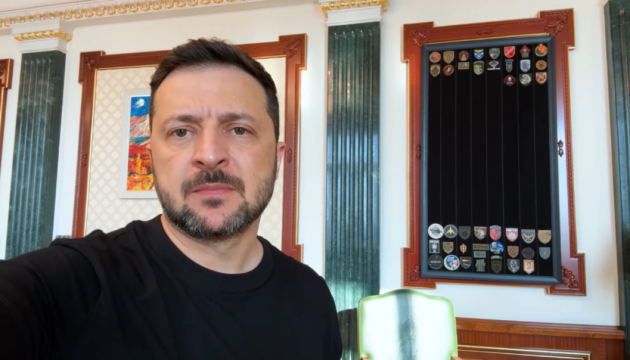



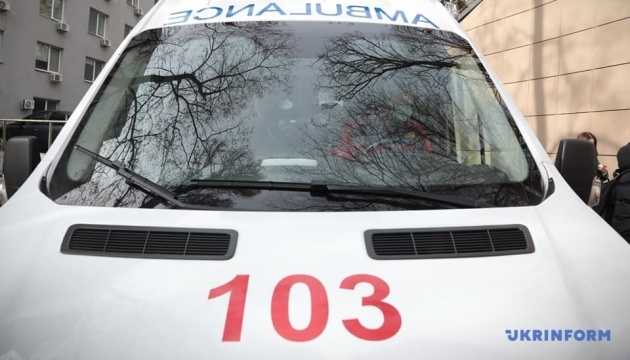

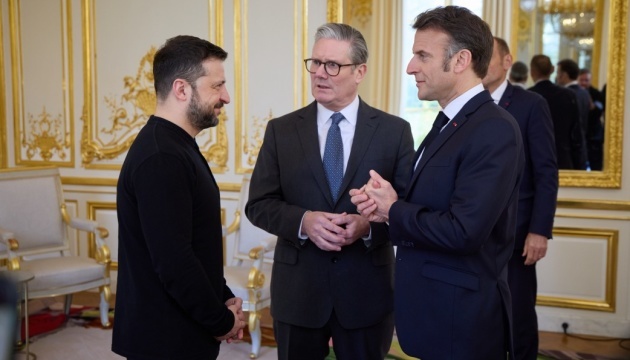

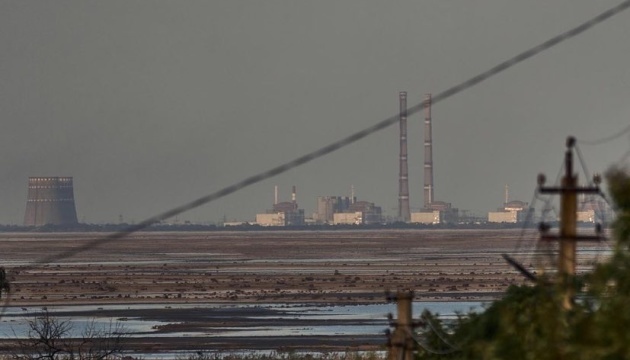



Anna Paulina Luna, a US lawmaker from the Republican Party, has connected an arms freeze to Ukraine’s ban on the Moscow-affiliated church.
This week, the Pentagon halted the delivery of certain air-defense missiles and precision-guided munitions to Ukraine, citing concerns over depleting US stockpiles.
In a post on X, Anna Paulina Luna accused President Volodymyr Zelenskyy of banning the Orthodox Church.
Fact check for Tucker Carlson: Russia, not Ukraine, is persecuting Christians
“Zelenskyy BANNED THE ORTHODOX CHURCH. I CAN PROMISE THERE WILL BE NO WEAPONS FUNDING FOR YOU @ZelenskyyUa. NEGOTIATE FOR PEACE. WE ARE NOT YOUR PIGGY BANK,” she wrote on X.
Meanwhile, an analysis conducted by senior US military officers showed that the weapons package for Ukraine, but halted, did not pose a threat to American military capabilities. Sources say that US Defense Secretary Pete Hegseth has unilaterally blocked arms for Ukraine, which were approved during Joe Biden’s presidency.
No fresh arms sanctions have been endorsed by US President Donald Trump’s administration. At the same time, since Trump’s peace efforts began, the only thing that has changed for Ukraine is the intensification of Russian attacks and an increase in the number of civilian victims.


“We’ve got a global front that matters to America.” State Department spokeswoman Tammy Bruce delivered that message during a 2 July briefing, as the Pentagon confirmed suspension of critical weapons shipments to Ukraine, including Patriot air defense missiles that protect civilians from constant Russian bombardment.
Bruce also noted that Washington expects European partners to “chime in” more substantially because of “the fronts that we’re always dealing with around the world.”
For Ukraine, the timing couldn’t be more alarming. Officials in Kyiv are scrambling to understand why US shipments already staged in Poland were abruptly halted, requesting clarification and a phone call between President Zelenskyy and President Trump.
The decision also sparked concern in Europe. French President Emmanuel Macron held his first phone conversation with Vladimir Putin since 2022 this week—a two-hour discussion that yielded no breakthrough but may reflect growing anxiety about America’s shifting priorities.
Dr. Frank Ledwidge, a senior lecturer in War Studies at Portsmouth University in the UK, told Euromaidan Press that these developments mark the inevitable consequence of Europe’s long reliance on US military support.
“Europe has been living a big holiday,” Ledwidge explains, “and now we have to pay for it.”
But while European governments may now face a geopolitical reckoning, it is Ukrainians who are paying the real price, dying under Russian missiles, bombs, and drones. Euromaidan Press set out to examine whether Europe can finally deliver on its promises to “stand with Ukraine” and provide the air defense systems needed to help the country survive.
The weapons suspension caught even senior officials off guard—Congress members, State Department officials, and European allies learned about it from news reports, according to Politico.
Pentagon policy chief Elbridge Colby appears to have driven the decision largely alone. He led an internal review that found US arsenals of artillery rounds, air defense missiles, and precision munitions had dropped to concerning levels. But here’s what didn’t happen: coordination with the rest of the government.
Who got blindsided? The State Department learned from media reports. The US embassy in Kyiv wasn’t consulted. Ukraine envoy Keith Kellogg’s team had no advance notice, Politico reports.
Amid the chaos, the halted weapons represent Ukraine’s survival kit: Patriot interceptor missiles, 155mm artillery shells, HIMARS rockets, Stinger missiles, and Hellfire missiles. More than two dozen Patriot PAC-3 missiles and over 90 AIM air-to-air missiles were among weapons recalled from Poland, according to the Wall Street Journal.
For Ledwidge, this decision reflects America’s strategic rebalancing rather than vindictiveness toward Ukraine.
“The overriding strategic priority for the United States Armed Forces is the Western Pacific,” he notes. “The most effective systems that the Americans currently have are the ones most needed in Ukraine, but they would be very much in demand in the South China Sea and in any Taiwan contingency.”
But the Pacific isn’t America’s only concern. The US has already redirected 20,000 air defense missiles from Ukraine to Middle East operations against Iranian targets and Houthi forces in Yemen—part of what State Department spokeswoman Bruce called America’s “global front.”
White House Deputy Press Secretary Anna Kelly defended the suspension: “The strength of the United States Armed Forces remains unquestioned—just ask Iran.” She referenced recent US military operations against Iranian nuclear sites.

But does the decision contradict that claim? If American military strength were truly unquestioned, why suspend weapons to a critical ally during wartime?
Ledwidge sees a fundamental paradox. “The West has been projecting this idea of strength when, in fact, much of that strength is illusory. The American armed forces do look like a very large and powerful force, and they are. However, they are very broad but in some ways not very deep.”
This depth problem extends across the Atlantic.
“Europe does not have sufficient air defense systems to defend itself, let alone give to Ukraine,” Ledwidge observes.
The United Kingdom exemplifies this weakness: “We have no Patriots, some ship-based equivalent missiles but no land-based launchers, and no missile defense system at all in Britain.”
The production constraints are stark. Only 20-30 Patriot missiles can be manufactured monthly, while far more are consumed in Ukraine and Middle East operations.
“These systems take a very long time to develop and build up large stocks,” Ledwidge notes, highlighting the gap between political promises and industrial reality.
Europe’s predicament stems from decades of what NATO Secretary-General Mark Rutte embarrassingly called relying on America as “Daddy.” Trump’s “America First” policy has shattered this arrangement.
The doctrine prioritizes American interests and capabilities above alliance commitments, demanding that allies shoulder greater responsibility for their own security rather than relying on US guarantees.
At the recent NATO summit in The Hague, Trump pushed European nations to spend 5% of GDP on defense, which is a target that doubles most current commitments.
Geography explains European divisions. Eastern European nations—Poland, the Baltic states, Finland—have taken Russian threats seriously. Poland began rearming a decade ago.
“Only now are we seeing the weapons coming through,” Ledwidge notes, highlighting the long lead times for military modernization.
By contrast, southwestern European countries remain hesitant to embrace substantial defense spending increases. Why should they worry? “Spain and its leaders don’t really face Russia as a problem,” Ledwidge observes.
While Poland builds serious deterrent capabilities and the Baltic states invest heavily despite their small size, major Western European powers continue to prioritize social spending over military readiness.
Here’s the catch: “For the last 30 years, we’ve been paying heavily for social security and other priorities while America has underwritten our defenses. This is why Britain doesn’t have any serious air and missile defense system—why should we when the Americans will defend us?”
The comfortable arrangement is over. European leaders now show what Ledwidge describes as “rather fearful expressions.” Even Macron’s outreach to Putin represents choosing “from a few very poor options available to him” as France lacks military leverage to dictate terms to Russia.
Can decades of underinvestment be reversed quickly?
“You’re trying to make up for 30 years of underinvestment, and that will take much more effort than we’ve seen so far,” Ledwidge warns.
While Europe struggles with defense spending commitments and America suspends weapons shipments, Russia has built a robust support network.
North Korea plans to send an additional 25,000 to 30,000 troops to assist Russia, tripling its military commitment from the original 11,000 soldiers deployed in November 2024 to Russia’s Kursk Oblast. Over 6,000 North Korean troops have already been killed, wounded, or gone missing in heavy frontline fighting.
Additionally, North Korea has supplied Russia with millions of artillery shells, along with missiles, long-range rocket systems, self-propelled howitzers, and short-range missile systems.
China’s role proves more substantial despite official denials. Chinese manufacturers supply Russia with 80% of critical electronics for Russian drones, according to Ukraine’s Foreign Intelligence Service. Beijing provides machine tools, special chemicals, gunpowder, and components directly to 20 Russian military factories.
“They use so-called shell companies, change names, do everything to avoid being subject to export control,” Ukrainian intelligence explains.
The production numbers tell the story.
Russia increased long-range drone production from 15,000 in 2024 to over 30,000 this year, aiming for 2 million small tactical drones.
Iran adds another layer through its January strategic partnership with Russia, covering defense cooperation and intelligence sharing. The country is most known for providing Russian forces with Shahed-136 attack drones, which Russia has since been able to manufacture independently.
Compare this coordination to Western hesitation. While Russia receives troops, workers, and industrial components from allies, Ukraine’s Western partners debate long-range strike permissions for months and suspend aid deliveries.
Europe lacks “escalation dominance”—European powers cannot “dictate the levels of force and coercion” necessary to shape outcomes on their terms, Ledwidge believes.
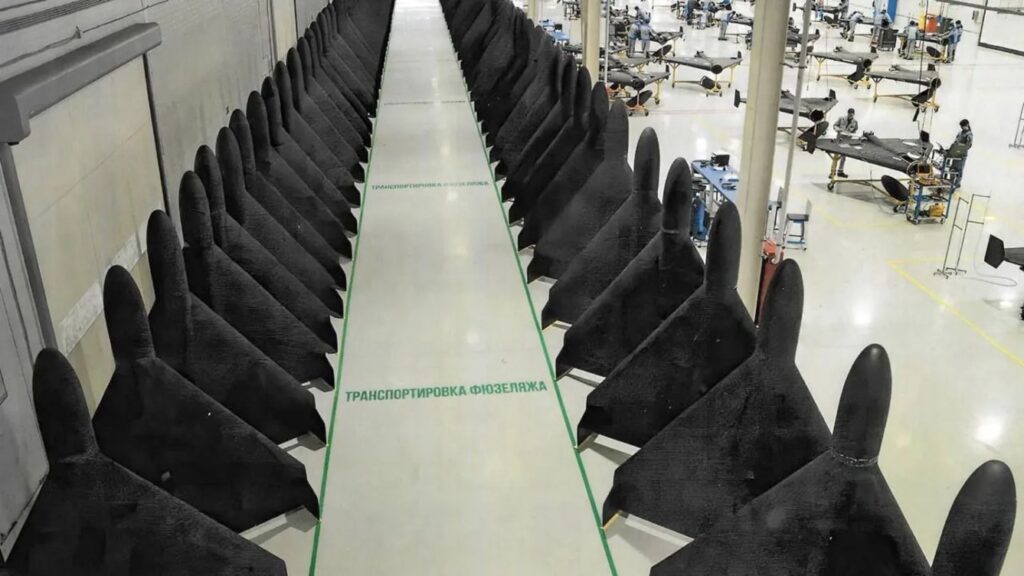
Think of Ukraine’s air defense like a castle’s defenses. Multiple walls protect against different threats.
The first wall: Shoulder-fired MANPADS that soldiers carry. Can Europe replace these? Yes. Poland’s Piorun and France’s Mistral systems work fine as substitutes.
The second wall: Short-range systems protecting tactical areas. Again, European alternatives exist, though in smaller quantities.
The critical third wall: Medium-range coverage that protects entire regions. Here’s where problems start. Ukraine relies heavily on American Patriots, NASAMS, and HAWK interceptors. Germany’s IRIS-T and the French-Italian SAMP-T offer similar capabilities, but “there aren’t as many launchers as there are Patriots,” Ledwidge explains.
The final wall: Long-range interceptors that stop ballistic missiles. This is where Europe falls short completely.
But Ukraine has already shown creativity under pressure. Necessity forced Ukrainian engineers to create hybrid “Franken-Buk” systems—mounting American AIM-7 missiles on old Soviet launchers when original Soviet missiles ran out.
Here’s the real problem: The dependency extends beyond ground systems to fighter aircraft. Ukraine’s F-16s use American AIM-9 and AIM-120 missiles. European nations possess limited stocks of compatible air-to-air munitions.
For HIMARS systems? “Europeans simply can’t backfill those—they’re an American form of munition,” Ledwidge notes.
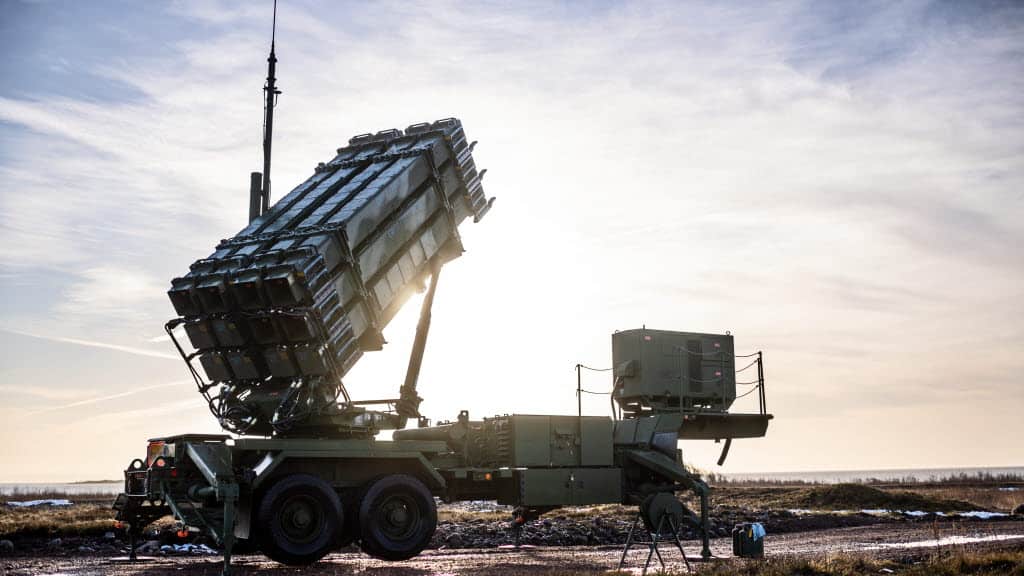
Ukraine could potentially maintain basic air defense using European systems. But the country would lose much capability against Russia’s most dangerous weapons—ballistic missiles and long-range cruise missiles that require Patriot-level systems.
The timing couldn’t be worse. Russian engineers have systematically upgraded Shahed drones. Newer variants fly at 2,800 meters altitude and reach 550-600 km/h—too high for machine guns, too fast for helicopters.
Modern Shaheds carry 12-channel navigation systems that resist electronic jamming. Their 90-kilogram (198 lbs) warheads also double earlier destruction potential.
These technological advances create a perfect storm: just as Ukraine loses access to American interceptors, Russian weapons become harder to counter with existing European alternatives.
Ledwidge sees little optimism about European defense commitments. Recent promises of 150 billion euros for EU defense funds and 650 billion in loan facilities “will never be taken up because there isn’t sufficient commitment, particularly from Southern Europe.”
The €150 billion comes from the EU’s newly established Security Action for Europe (SAFE) regulation, approved in May 2025. It provides loans to member states for joint arms procurement and defense technology development. The €650 billion represents loosened fiscal rules allowing countries to increase national defense budgets substantially over the coming years under the ReArm Europe program.
Why does he believe these funds won’t materialize? Sophisticated weapons systems require enormous financial investments and years of development time. The gap between political declarations and actual capability generation reflects deeper structural problems in European decision-making.
His prediction extends beyond the current crisis: “There will be an even bigger panic when the Americans actually start withdrawing troops.”
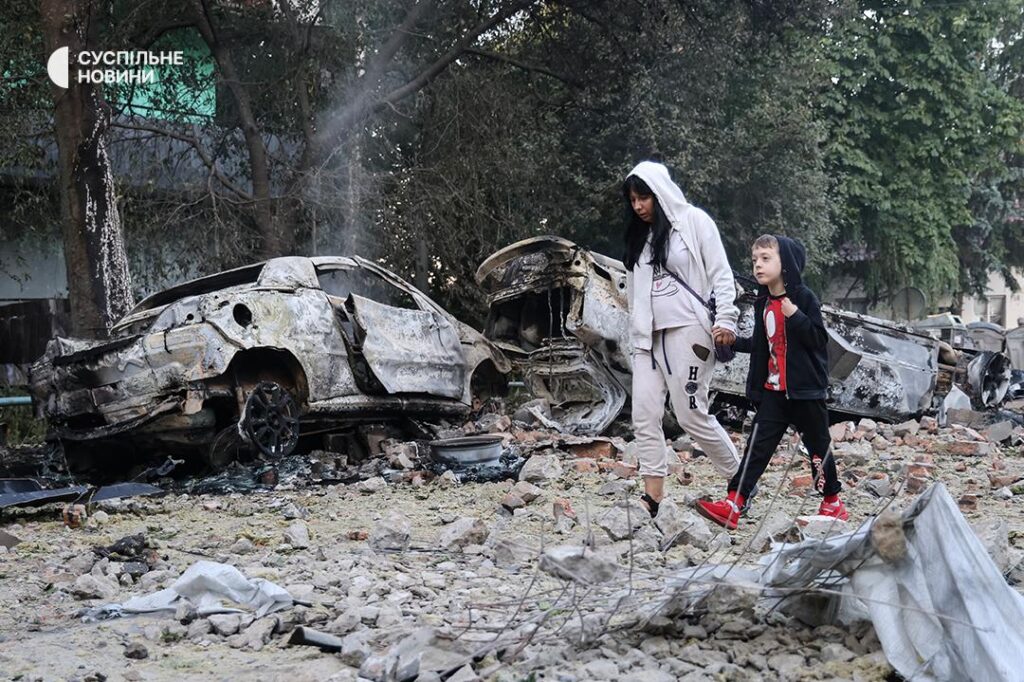
For Ukraine, that panic has already begun. As Washington delays critical decisions and European rearmament remains mostly on paper, the country continues to fight under daily missile fire, often without the systems it urgently needs. Kyiv is still awaiting a response to its $30–50 billion weapons purchase proposal, a last-ditch effort to secure enough air defense and ammunition to survive the coming months.
While Europe debates fiscal frameworks and timelines, Ukraine is left asking a more immediate question: can its allies deliver real support now—before it’s too late?


Kyiv and Copenhagen signed a landmark agreement on July 4 that allows Ukrainian defense companies to open production facilities in Denmark, Strategic Industries Minister Herman Smetanin announced.
"This is a unique case of international cooperation for the Ukrainian defense industry," Smetanin wrote on Facebook, following the signing ceremony in Copenhagen alongside Danish Industry Minister Morten Bodskov.
The deal marks the first time Ukrainian defense technologies will be exported abroad specifically for supply to Ukraine's own Armed Forces, he said.
A year ago, Denmark became the first country to fund weapons production by Ukrainian manufacturers. Now, it has become the first to host Ukrainian arms production lines on its territory, Smetanin added.
"Today, it has become the first country to which Ukraine exports its own defense technologies for production, scaling, and supply to the Ukrainian army," he said.
The agreement is part of Ukraine's broader effort to internationalize its defense production. President Volodymyr Zelensky announced on June 21 that Kyiv would soon begin exporting defense technologies and opening weapons production lines in partner countries.
To scale up domestic and international production, Zelensky has called on foreign partners to finance new projects and match Ukraine's rapidly growing manufacturing capacity.
Denmark has been a key backer of Ukraine since the start of Russia's full-scale invasion in 2022. In February 2024, Copenhagen signed a 10-year bilateral security agreement with Kyiv, pledging long-term defense cooperation until Ukraine secures NATO membership.
 The Kyiv IndependentKateryna Hodunova
The Kyiv IndependentKateryna Hodunova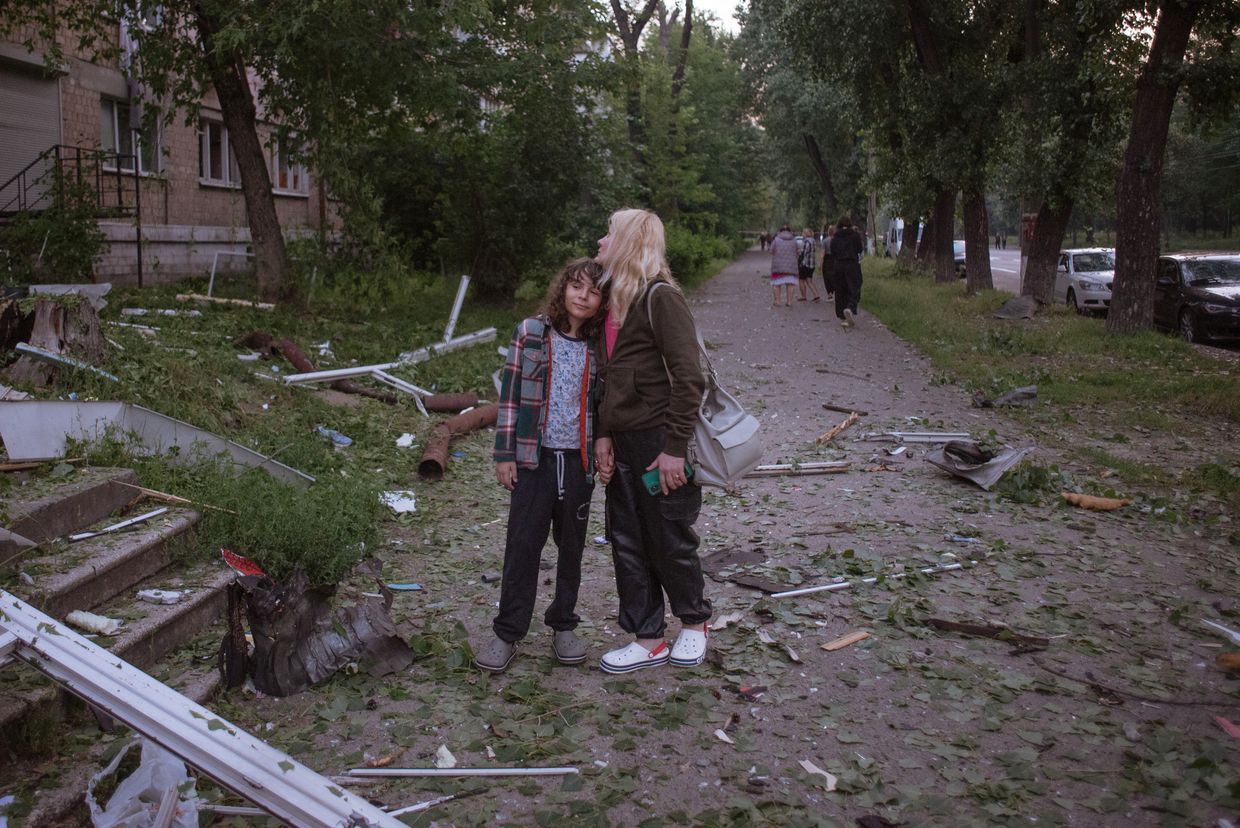
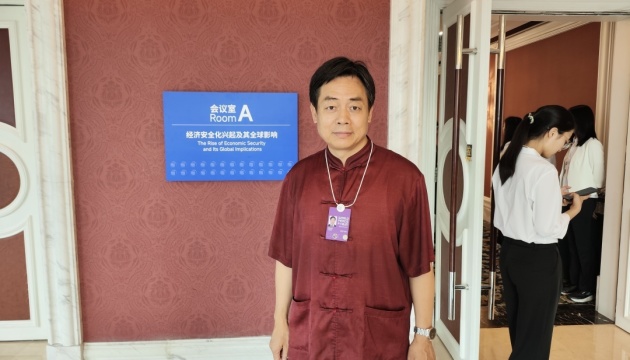

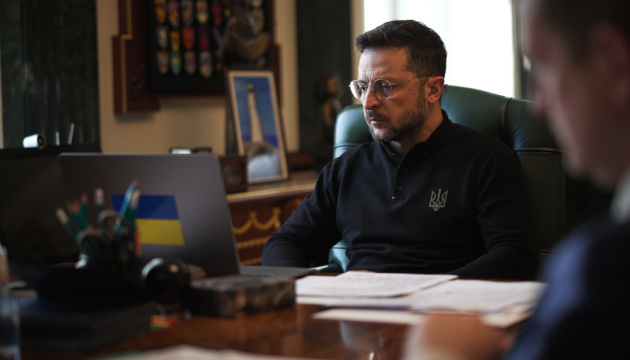

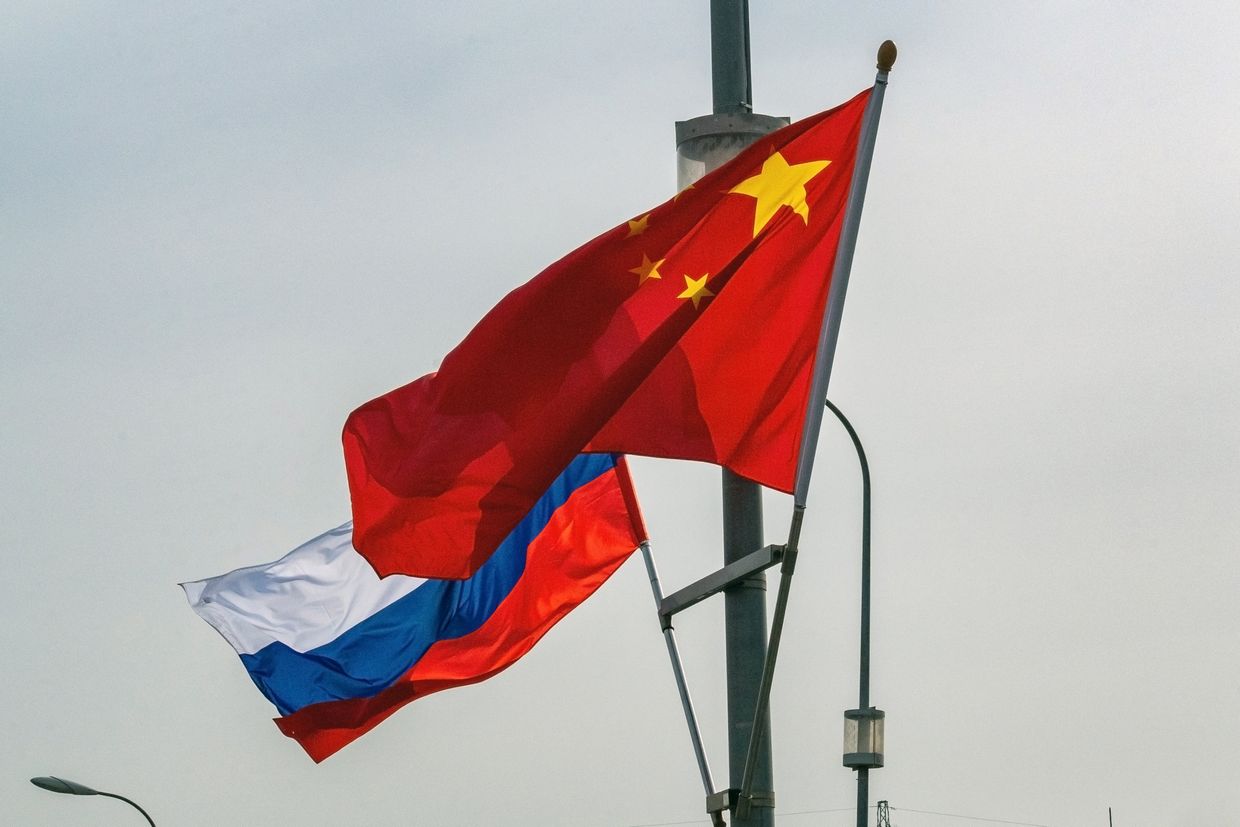

A Russian missile and drone strike on Odesa on July 3 damaged the building of the Chinese Consulate General, Foreign Minister Andrii Sybiha said on July 4.
"Following tonight's massive Russian air attack on Ukraine, we discovered in Kyiv a component of a Russian-Iranian Shahed-136/Geran-2 combat drone, which was made in China and supplied just recently," Sybiha wrote on X.
"And right on the eve, the Chinese Consulate General's building in Odesa suffered minor damage."
The July 3 assault on Odesa killed two people and injured six others. China has not publicly acknowledged the incident or reported any damage to its diplomatic premises in the city.
The Shahed-136 drone, a loitering munition used by Russia in its attacks on Ukrainian cities, has been assembled in large numbers in Russia with components sourced globally.
Ukraine has previously documented that Chinese companies have contributed electronics and materials used in the production of these drones.
Beijing remains one of Russia's key wartime partners, helping Moscow evade Western sanctions and emerging as the leading supplier of dual-use goods used by the Russian defense industry.
China's Foreign Minister Wang Yi reportedly told EU foreign policy chief Kaja Kallas on July 3 that Beijing cannot afford for Russia to lose the war in Ukraine, according to the South China Morning Post, which cited unnamed sources familiar with the conversation.
The reported statement adds to growing concerns in Kyiv over China's expanding role in supporting Russia's war effort. President Volodymyr Zelensky has repeatedly accused China of siding with Moscow.
As Russian-Chinese relations deepen, Russian President Vladimir Putin is expected to visit China in September for the Shanghai Cooperation Organization summit, where he is scheduled to meet with Chinese leader Xi Jinping.
 The Kyiv IndependentTim Zadorozhnyy
The Kyiv IndependentTim Zadorozhnyy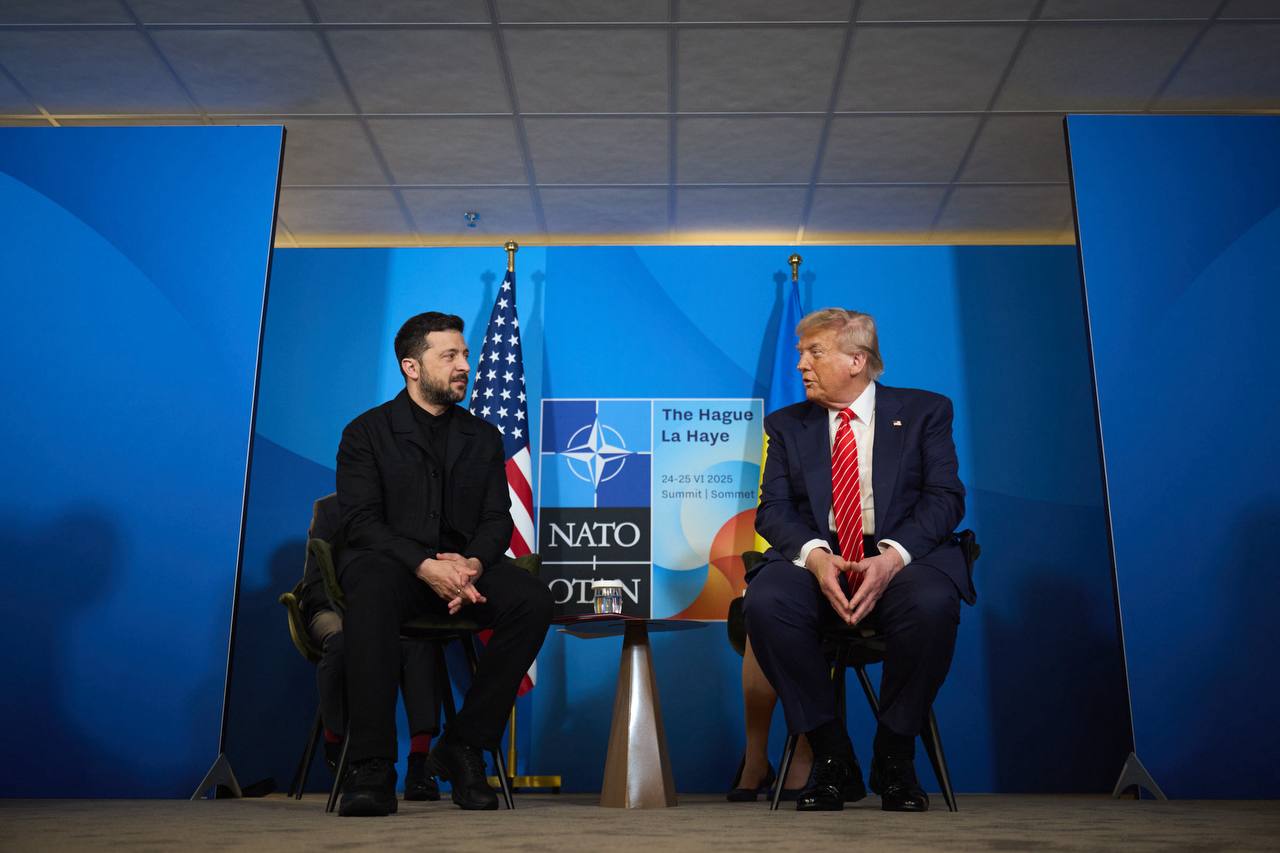
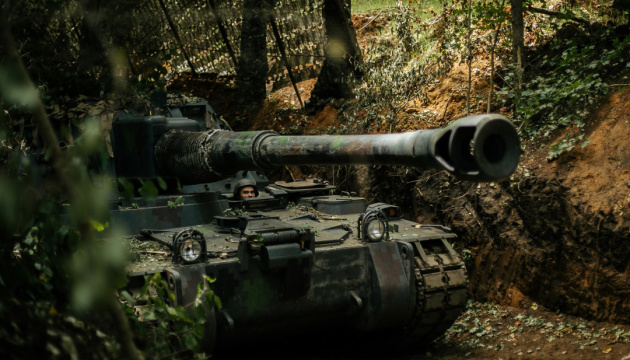

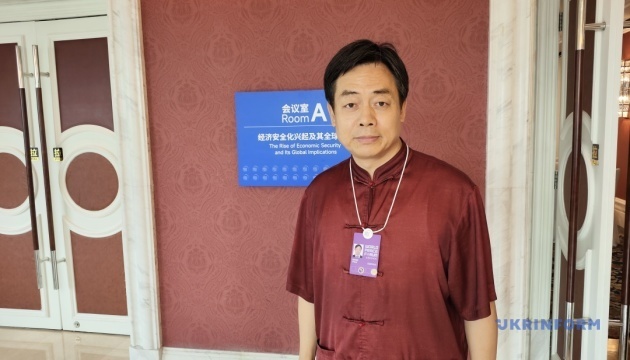



© Copyright 2018 The Associated Press. All rights reserved.


US military leaders are clear: aid to Ukraine does not harm America. But Defense Secretary Pete Hegseth once again says “no,” despite the facts, the pressure, and the law, NBC News reports.
Chaos in sky: Hegseth halts Ukraine’s weapons flights without Trump’s order
An analysis conducted by senior US military officers showed that the weapons package for Ukraine, but halted, did not pose a threat to American military capabilities. Nevertheless, Hegseth suspended the shipment, the media outlet writes, citing three US officials.
According to sources, the Pentagon chief’s decision has surprised the US State Department, members of Congress, Ukrainian officials, and European allies. It has been criticized by both Republicans and Democrats in the US.
Representative Adam Smith, a Democrat from the House Armed Services Committee, has stated that the Pentagon’s explanation for pausing the aid was disingenuous, saying the real reason appears to be simply to end US support for Ukraine.
“We are not at any lower point, stockpile-wise, than we’ve been in the 3½ years of the Ukraine conflict,” Smith says, adding that his staff “saw the numbers,” and there was no evidence of shortages that would justify halting the aid.
The sources said Hegseth was supported by Elbridge Colby, the Deputy Secretary of Defense for Policy. Colby has long advocated reducing American aid to Ukraine and shifting weapons and resources to the Pacific region to counter China.
Congressional aides said lawmakers from both parties have been frustrated that they had not been informed in advance and were reviewing whether the delay violated legislation requiring continued security assistance to Ukraine. The White House has defended the decision, stating it followed an ongoing Pentagon review of support to allies and partners.
The review began after Hegseth ordered the Pentagon Joint Staff to reassess stockpiles of all munitions. According to three officials, while some US precision munitions were at lower levels, the figures had not crossed critical thresholds.
Officials say the Joint Staff has concluded that further aid to Ukraine would not reduce US stockpiles below the levels required for military readiness.
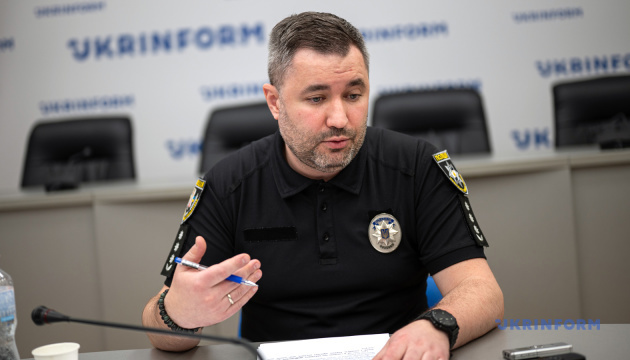

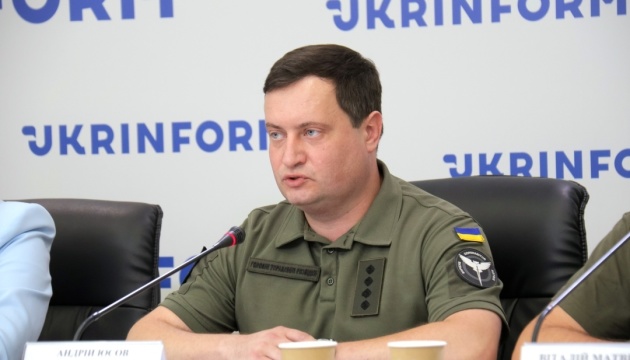



A Ukrainian attack on 4 July targeted a key Russian defense facility in the city of Azov, Rostov Oblast, about 200 km from the frontline. The Azov Optic-Mechanical Plant, which manufactures critical electronic components for Russian missiles and armored vehicles, was hit by multiple drones in a bold daylight assault. The extent of the damage is currently unknown.
According to Militarnyi, the attack occurred on the morning of 4 July when Ukrainian strike drones launched an assault on the Azov Optic-Mechanical Plant, part of Russia’s Tactical Missile Armament Corporation.
Social media footage showed fixed-wing UAVs diving toward the site, followed by explosions and visible smoke. One of the drones bore a delta-wing “Shahed-like” structure, suggesting the use of an unknown new UAV model.
The original Shaheds are Iranian-designed long-range explosive drones that Russia uses in its daily attacks on Ukrainian cities. They are easily recognizable by their rounded nose and triangular, delta-shaped wings.
Ukrainian Telegram channel Exilenova+ posted an image, showing a delta-wing drone with the caption:
“Rostov. Likely a new UAV from Ukraine’s Defense Forces.”
Later, the same channel shared videos capturing different UAV types, including a well-known Ukrainian drone and a delta-wing aircraft believed to be a new model.
“Azov was attacked by several types of birds,” Exilenova+ commented. “We see an FP-1 pass over, and then, probably, the strike of that same ‘new’ drone.”
Militarnyi noted that “Delta-wing drones are fairly common, but they are rarely used by those attacking the aggressor country. What specific model was used remains unknown at this time.”
Russian authorities initially claimed their air defense forces intercepted the drones. Russian Telegram channel Astra reported that at least ten UAVs or their debris “fell” on the factory grounds. The local emergency services confirmed the site was impacted on 4 July.
Yury Slyusar, acting governor of Rostov Oblast, stated that evacuation efforts were underway due to widespread damage from UAV debris, claiming that the attack damaged residential buildings. While initial reports suggested no injuries, Slyusar had also stated that one woman killed in the overnight attack.
The Russian Ministry of Defense claimed that air defenses downed 26 drones over Rostov Oblast overnight on 4 July. In Shakhty, a UAV strike allegedly caused a transformer substation to shut down, leaving around 2,000 homes — with more than 6,000 residents — without power. Buildings near the substation also suffered window damage.
The Azov Optic-Mechanical Plant is a core producer of high-precision electronics, optical, and thermal imaging equipment for Russia’s military. As detailed by Exilenova+, it manufactures lenses, prisms, radar homing heads, and control systems used in tanks, infantry fighting vehicles, naval systems, and aircraft.
Ukraine’s Center for Countering Disinformation, under the National Security and Defense Council, confirmed the strike. Its head, Andrii Kovalenko, emphasized that the plant produces “eyes” for Russian military hardware, including fire control systems and rangefinders. He stated,
“Despite a difficult night (a reference to Russia’s massive missile and drone attack on Kyiv, – Ed.), there is good news. In Russia, targets were hit in Moscow and Rostov oblasts. The Azov Optic-Mechanical Plant was struck.”
The facility has been under US sanctions since March 2022 due to its role in the Russian war effort. It is also sanctioned by Canada, Switzerland, the European Union, New Zealand, and Ukraine. The Ukrainian Defense Intelligence’s War & Sanctions project has identified foreign-origin components at the site, including machinery from Taiwan, South Korea, and Switzerland.


Ukraine will establish defense plants in Denmark. Ukraine’s Minister for Strategic Industries, Herman Smetanin, and Denmark’s Minister for Industry, Morten Bødskov, have signed an agreement on cooperation.
Herman Smetanin recalls that a year ago, Denmark was the first to begin financing weapons production by Ukrainian companies.
Today, it has become the first country where Ukraine exports its own defense technologies for production, scaling, and delivery to the Ukrainian military.
“This is a unique case of international cooperation for the Ukrainian defense industry. I am extremely grateful to Denmark for such significant support of Ukraine’s defense sector,” the minister states.
He adds that Ukraine will make every effort to strengthen Denmark’s and its partners’ defense capabilities.
In 2024, Ukraine and Denmark introduced a new mechanism for funding arms procurement for the Armed Forces of Ukraine. This mechanism was named the “Danish model.”
It is a system of military assistance to Ukraine that involves direct financing and procurement of weapons from Ukrainian defense companies. This approach supports Ukraine’s defense industrial base, helping to equip Kyiv troops with NATO-standard technology.
The first project under the Danish model was the procurement of 155mm 2S22 Bohdana self-propelled howitzers with full-cycle financing, from production to crew training and technical support. In 2025, defense support under this model will scale up to over €1.3 billion, part of which comes from frozen Russian assets. The funds will go toward the production of artillery, attack drones, missiles, and anti-tank systems.
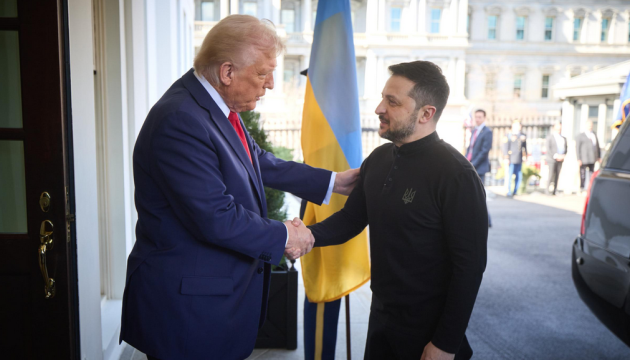



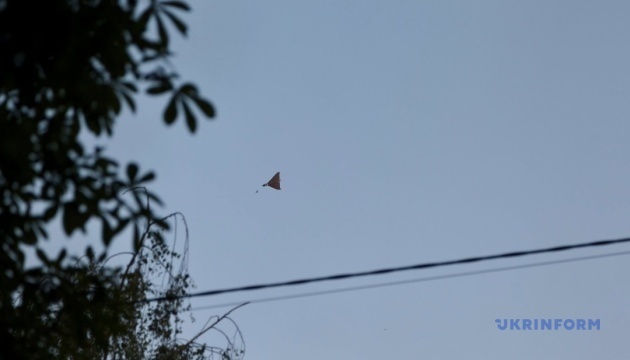

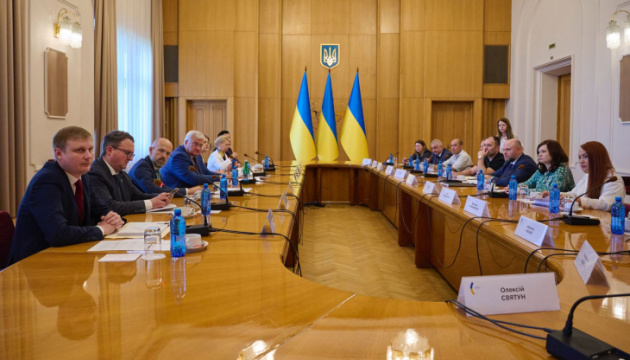



President Volodymyr Zelensky and U.S. President Donald Trump held a phone conversation on July 4, agreeing to strengthen Ukraine's air defenses, Zelensky announced on Telegram.
The call came as Russia escalated its aerial campaign across Ukraine, including an overnight July 4 attack that struck Kyiv and several other regions, injuring at least 23 civilians and sparking dozens of fires in the capital.
"Today we discussed the situation: Russian air strikes and, more broadly, the situation on the front lines. President Trump is very well informed," Zelensky said.
"We discussed air defense options and agreed to work on increasing airspace protection. We agreed on a meeting between our teams."
Zelensky said the two leaders also discussed Ukraine's defense industry potential and explored possibilities for direct cooperation with U.S. partners.
"We are ready for direct projects with America and believe that this is extremely necessary for security, especially with regard to drones and related technologies," he added.
Trump told Zelensky that the U.S. is willing to assist Ukraine with air defense amid intensified Russian strikes, Axios reported, citing unnamed sources. The call between the two presidents reportedly lasted about 40 minutes.
This conversation followed a phone call between Trump and Russian President Vladimir Putin on July 3, during which the Kremlin said Putin reaffirmed that "Russia will continue to pursue its goals" in its war against Ukraine despite U.S. calls for a ceasefire.
Trump told reporters on July 3 that he was "very disappointed" by the conversation with Putin.
"I don't think he's there... I don't think he's looking to stop this fighting."
The call also followed the U.S. Defense Department's decision to pause shipments of key weapons systems to Ukraine, including Patriot missiles and precision-guided artillery rounds. Kyiv has warned that the delay threatens to weaken its air defenses and emboldens Moscow.
Despite repeated expressions of frustration about Russia's continued aggression, Trump's administration has yet to impose new sanctions or approve additional aid for Ukraine since taking office in January.
While Russia and Ukraine resumed direct talks in Istanbul this year, the two rounds of negotiations — on May 16 and June 2 — have yielded only prisoner exchanges and no progress toward a ceasefire.
 The Kyiv IndependentAnna Fratsyvir
The Kyiv IndependentAnna Fratsyvir